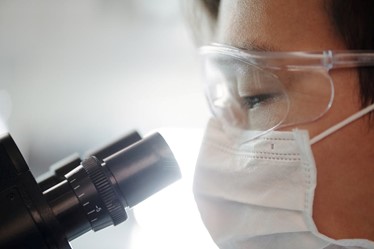A volatile year for the Australia 200's healthcare companies but vaccine brings new hopes
In collaboration with IG
There is no doubt that COVID-19 has truly redefined the Australian and international healthcare sectors. It's perhaps unsurprising that a global pandemic would make national healthcare providers, pharmaceutical companies, and other sector stakeholders, reassess their place and service.
The events of the last year saw economic fallout on a global scale and sent the world’s stock markets into turmoil. But now the dust has begun to settle, it’s healthcare companies that remain standing.
How did Australia react?
To get an insight into how Australian business fared in the face of the pandemic, we can follow in the footsteps of keen traders and take a look at the price charts for the Australia 200. Using this valuable tool for tracking indices' movements, we can see that on the 15 March 2020, this particular index registered the biggest drop on record: 9.7% in a day. But it wasn’t over yet. The market continued to fall over the following weeks registering a staggering 39% loss all in all. The index was able to provide a comprehensive view of how companies both in and outside of the healthcare sector performed during the year.
Since then the Australia 200 has rebounded significantly and has reached the point it was at in January 2020, before the pandemic struck. This has been driven for the most part by the strength of healthcare companies, and high hopes for the roll-out of the COVID-19 vaccine.
Poor performers

Source: Pexels
Within the industry itself, segments such as preventative health and elective surgeries slowed down as companies channelled their resources into managing the pandemic, treating cases, and looking for a vaccine. Many companies quickly adapted their products and portfolios to meet the new demands placed upon them.
Some of the poor performers of the year were those companies providing aged care throughout the country. Estia Health Ltd witnessed a share value decrease of 33.2% during 2020. But they weren’t alone in this. Regis Healthcare and Japara Healthcare Ltd, both providers of services to elderly individuals, also witnessed big losses. Regis fell by 25.9% and Japara lost 33.3% of its value during the year.
Pharmaceutical resilience
Pharmaceutical companies, however, fared better. The Australian multinational Starpharma Holdings had a good year and is continuing to increase in value in 2021. The company spent the year developing a nasal spray that has the potential to prevent acquisition and transmission of the novel virus and to complement vaccination. Other Australia-based companies like Mayne Pharma, Neuren Pharmaceuticals, Creso Pharma and Botanix Pharmaceuticals all did well and continue to do so, despite the difficult climate.
But as news of the COVID-19 vaccines broke, all markets across the world picked up. As it became apparent there were choices of several different vaccines from various companies, the outlook looked even better.
Once vaccines started being administered, investors, analysts and traders became infinitely more hopeful. The roll-out of vaccines means a potential return to normality and more economic certainty in the short and long term. This hope was like rocket fuel to the markets and saw prices rise across the board, and even more so in healthcare sector companies.
Looking ahead to the rest of 2021, for investors, healthcare is a safe bet. There is going to be continued demand for pharmaceuticals, specialist care, medical equipment, and vaccine-related products. As the vaccine is distributed throughout Australia, we can expect to see a return to some semblance of economic certainty. This will certainly keep investors happy.








